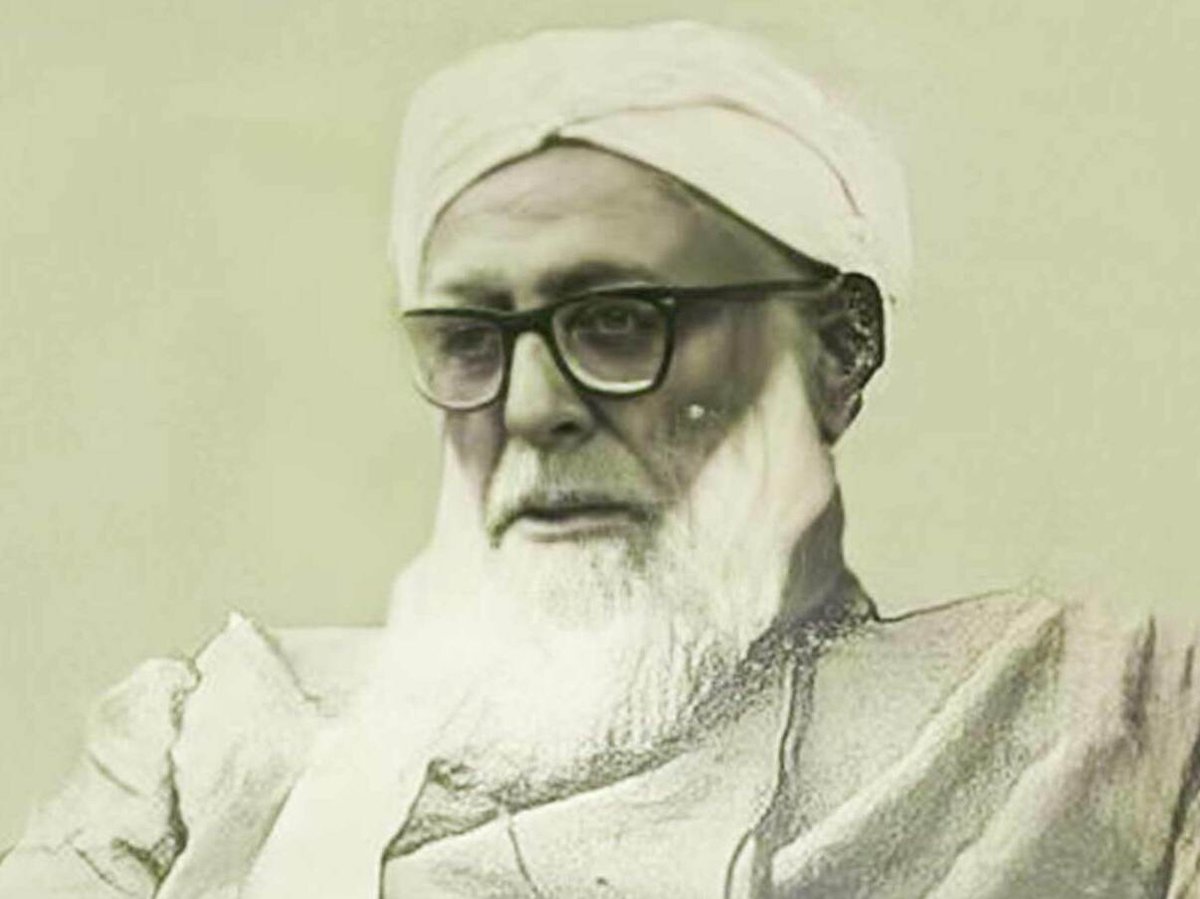The innovations of Ibn Taymiyyah 🧵
Abu Hafs al-Bazzār narrates that Ibn Taymiyyah would always repeat Sūrat al-Fātiha from after Fajr until sunrise
al-A‘lām al-‘Aliyyah, 38

al-A‘lām al-‘Aliyyah, 38


Ibn al-Qayyim narrates that Ibn Taymiyyah said:
“He who repeats 40 times, between the Sunnah of Fajr and the Fard of Fajr:
“Yā Hayy Yā Qayyūm, Lā Ilāha illā ant, bi Rahmatika Astaghīth”
His heart will be alive, and it would not die”
Madārij al-Sālikīn, 1/446

“He who repeats 40 times, between the Sunnah of Fajr and the Fard of Fajr:
“Yā Hayy Yā Qayyūm, Lā Ilāha illā ant, bi Rahmatika Astaghīth”
His heart will be alive, and it would not die”
Madārij al-Sālikīn, 1/446


When Ibn Taymiyyah wanted guidance in a specific issue of Tafsīr, he would visit abandoned Masājid, rub his face in the dirt, and say:
“O teacher of Ibrāhīm, make me understand”
Or:
“O teacher of Adam and Ibrāhīm, teach me”
al-‘Uqūd al-Durriyyah, 24-25


“O teacher of Ibrāhīm, make me understand”
Or:
“O teacher of Adam and Ibrāhīm, teach me”
al-‘Uqūd al-Durriyyah, 24-25
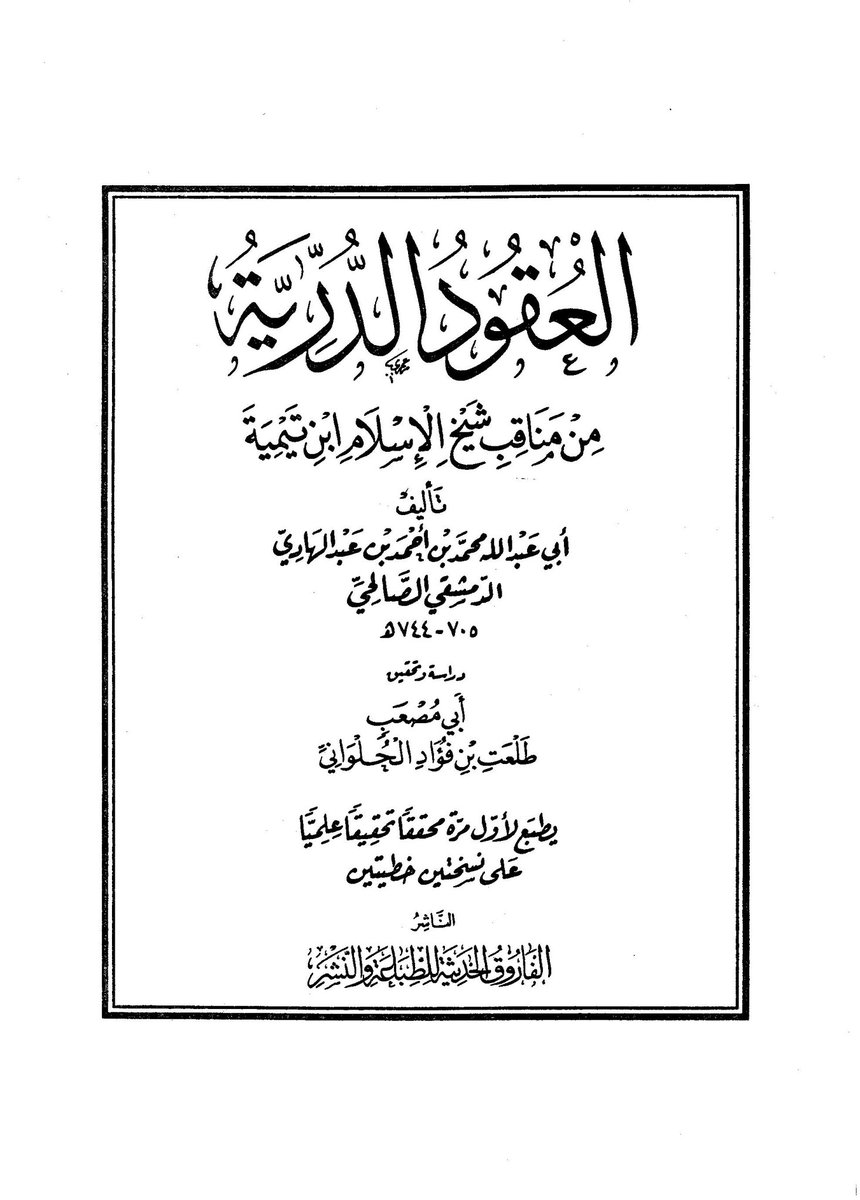


Ibn Taymiyyah says that doing Tasbīh with prayer beads is permissible/good (حسن)
Majmū‘ al-Fatāwā, 22/506

Majmū‘ al-Fatāwā, 22/506


Even further than that, he was asked: Is there an issue of using prayer beads during prayer?
He responded:
“If the question is about counting verses, or counting repeating the same chapter —like al-Ikhlās— with a Subha, then there is no issue with it”
Majmū‘ al-Fatāwā, 22/625

He responded:
“If the question is about counting verses, or counting repeating the same chapter —like al-Ikhlās— with a Subha, then there is no issue with it”
Majmū‘ al-Fatāwā, 22/625


Ibn Taymiyyah holds that one can gift the rewards of reading Qur’ān or Adhkār to the dead
Majmū‘ al-Fatāwā, 24/324

Majmū‘ al-Fatāwā, 24/324
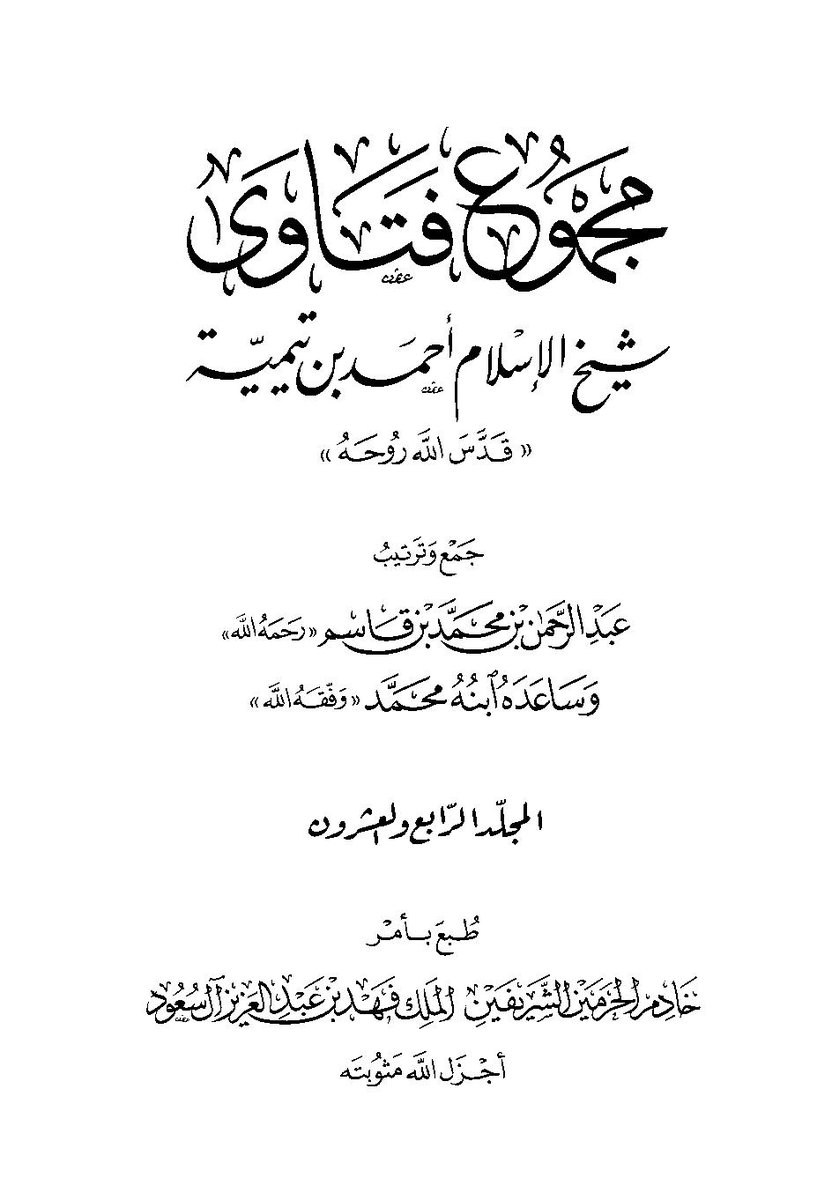

Ibn Taymiyyah was asked about saying “Lā Ilāha illā Allāh” 70,000 times and gifting it to the dead
He responded:
“If he does it like this 70,000 times, or more, or less, and gifts it Allāh will benefit them with it. And this has no [basis] in neither authentic nor weak Hadīth”

He responded:
“If he does it like this 70,000 times, or more, or less, and gifts it Allāh will benefit them with it. And this has no [basis] in neither authentic nor weak Hadīth”


Majmū‘ al-Fatāwā, 24/323
Ibn al-Qayyim said:
“What to write as cure from epistaxis:
Shaykh al-Islām Ibn Taymiyyah used to write on his forehead:
{And it was said, “O earth! Swallow up your water. And O sky! Withhold ˹your rain˺.” The floodwater receded and the decree was carried out.} (Sūrat Hūd 44)

“What to write as cure from epistaxis:
Shaykh al-Islām Ibn Taymiyyah used to write on his forehead:
{And it was said, “O earth! Swallow up your water. And O sky! Withhold ˹your rain˺.” The floodwater receded and the decree was carried out.} (Sūrat Hūd 44)


I heard him say: I wrote it for multiple people who were all cured.”
Zād al-Ma‘ād, 4/328
Zād al-Ma‘ād, 4/328
Ibn Taymiyyah did not see issue in the “Abdāl” and “Aqtāb”
Jāmi‘ al-Masā’il 1/67-81




Jāmi‘ al-Masā’il 1/67-81
https://x.com/D1mashqi/status/1690828234877808640?t=T147MYHuoJ20X4GcB2_8yw&s=19



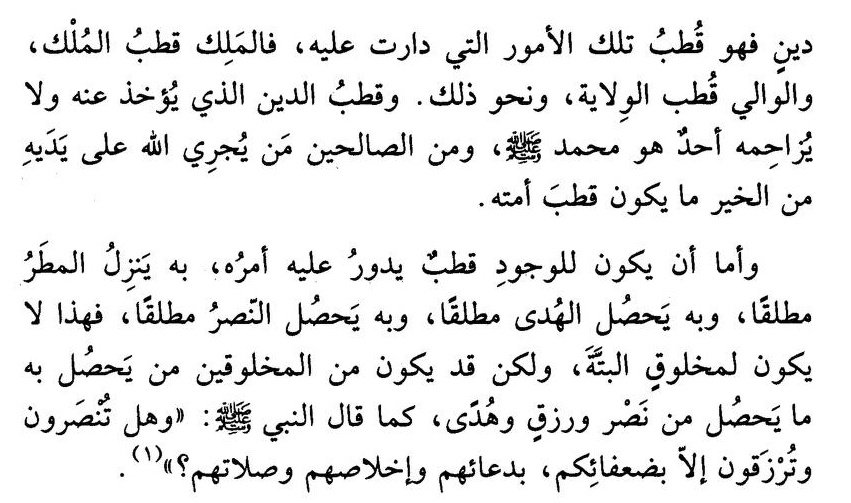
Ibn Taymiyyah supporting his Fatwā by narrating a dream
Ibn al-Qayyim says:
“Our Shaykh (Ibn Taymiyyah) said:
I used to have some unsolved issues. So when I saw the Prophet ﷺ in a dream, I asked him about them, and he answered one of them with: ...”
I‘lām al-Mūqi‘īn, 5/372

Ibn al-Qayyim says:
“Our Shaykh (Ibn Taymiyyah) said:
I used to have some unsolved issues. So when I saw the Prophet ﷺ in a dream, I asked him about them, and he answered one of them with: ...”
I‘lām al-Mūqi‘īn, 5/372


In fact, Ibn Taymiyyah used to answer Fatāwā even after he died
Ibn al-Qayyim said:
“Multiple people have informed me that they saw Ibn Taymiyyah in a dream after his death and asked him questions they had issue with, to which he answered with the correct answers”
al-Rūh, 96

Ibn al-Qayyim said:
“Multiple people have informed me that they saw Ibn Taymiyyah in a dream after his death and asked him questions they had issue with, to which he answered with the correct answers”
al-Rūh, 96


Ibn al-Qayyim narrates that Ibn Taymiyyah swore over 70 times that the Tatar will be defeated (before it happened), and that it is written on al-Lawh al-Mahfūdh!
Madārij al-Sālikīn, 2/458

Madārij al-Sālikīn, 2/458


Ibn Taymiyyah wearing the Sūfī Khirqah (cloak) and transmitting it
Ibn ‘Abd al-Hādī transmits the Khirqah from Ibn Taymiyyah, who transmitted it from ‘Abd al-Qādir al-Jilānī
Bad’ al-‘Ulqah bi Libs al-Khirqah, 2

Ibn ‘Abd al-Hādī transmits the Khirqah from Ibn Taymiyyah, who transmitted it from ‘Abd al-Qādir al-Jilānī
Bad’ al-‘Ulqah bi Libs al-Khirqah, 2


The conclusion of Ibn Taymiyyah with regards to the issue of the Khirqah is that it is Mubāh, and if it is accompanied with a good intention it would be rewarding
Even though he concurs that there is no proof for it in the Sunnah
Majmū‘ al-Fatāwā, 11/510-511


Even though he concurs that there is no proof for it in the Sunnah
Majmū‘ al-Fatāwā, 11/510-511



Ibn Taymiyyah says:
“Glorifying the Mawlid could earn some people great reward from it for their good intention and glorification of the Prophet ﷺ
What is good for some people can be bad for the strong believer”
Iqtidā’ al-Sirāt al-Mustaqīm, 2/126

“Glorifying the Mawlid could earn some people great reward from it for their good intention and glorification of the Prophet ﷺ
What is good for some people can be bad for the strong believer”
Iqtidā’ al-Sirāt al-Mustaqīm, 2/126


And just so you are not surprised how innovations can possibly occur from Ibn Taymiyyah, he himself says:
“Many of the Mujtahids from the Salaf and Khalaf have said and done what is a Bid‘ah”
Majmū‘ al-Fatāwā, 19/191

“Many of the Mujtahids from the Salaf and Khalaf have said and done what is a Bid‘ah”
Majmū‘ al-Fatāwā, 19/191


Note:
Since there are many strands of Salafism, and since they differ on what is and isn't an innovation, if you see something you don't consider an innovation, please don't give me a headache about it
You are not the intended audience, it's for the other 72 strands of Salafism
Since there are many strands of Salafism, and since they differ on what is and isn't an innovation, if you see something you don't consider an innovation, please don't give me a headache about it
You are not the intended audience, it's for the other 72 strands of Salafism
Perhaps citing their one and only authority as a final resort can knock some sense into them
Nothing else seems to be working from the Salaf or Khalaf
Nothing else seems to be working from the Salaf or Khalaf
Some additions:
Ibn Taymiyyah did not oppose ‘Ilm al-Kalām
Ibn Taymiyyah did not oppose ‘Ilm al-Kalām
https://x.com/D1mashqi/status/1679406392547987457?t=NSYUiyR_QjMJnqyASzv5lw&s=19
Ibn al-Qayyim narrates that Ibn Taymiyyah used to read the verses of Sakīnah when he would be in harsh positions, and that he overcame great difficulties because of it
Ibn al-Qayyim says: I have tried it myself and found great benefit in it
Madārij al-Sālikīn, 2/471

Ibn al-Qayyim says: I have tried it myself and found great benefit in it
Madārij al-Sālikīn, 2/471
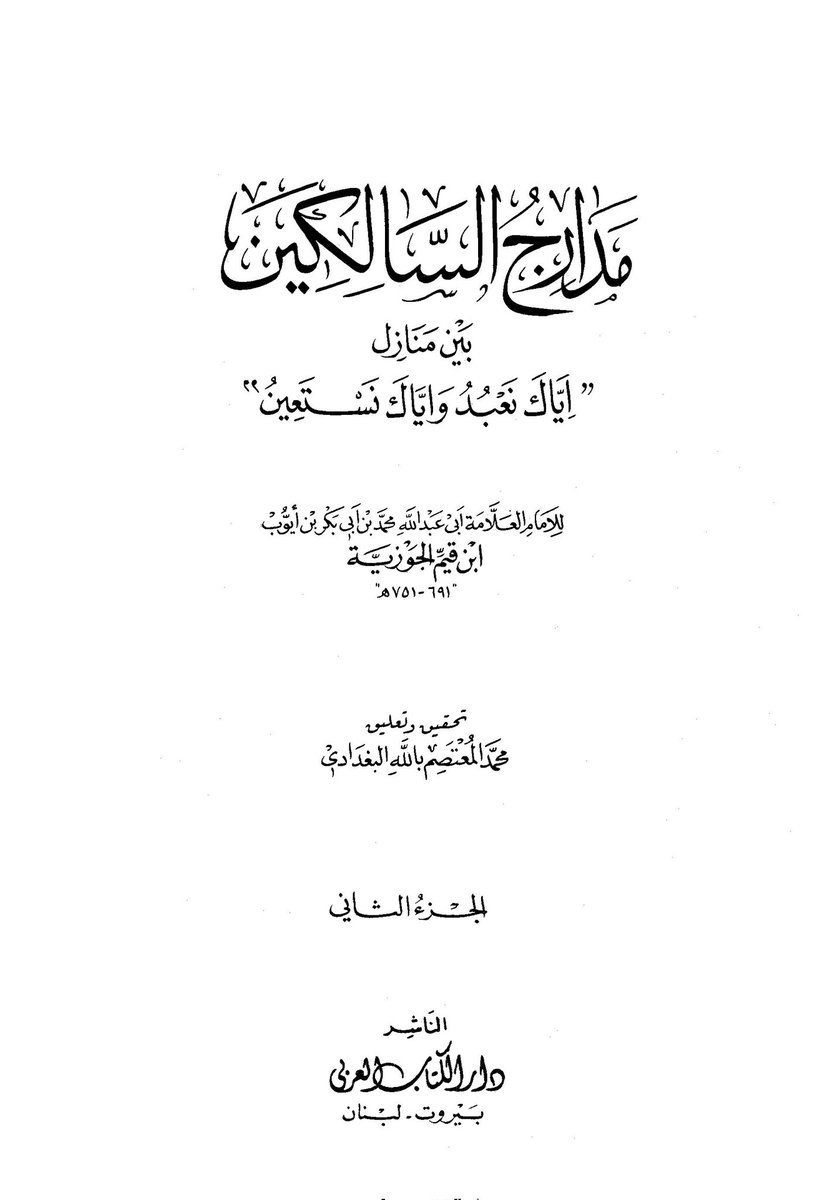
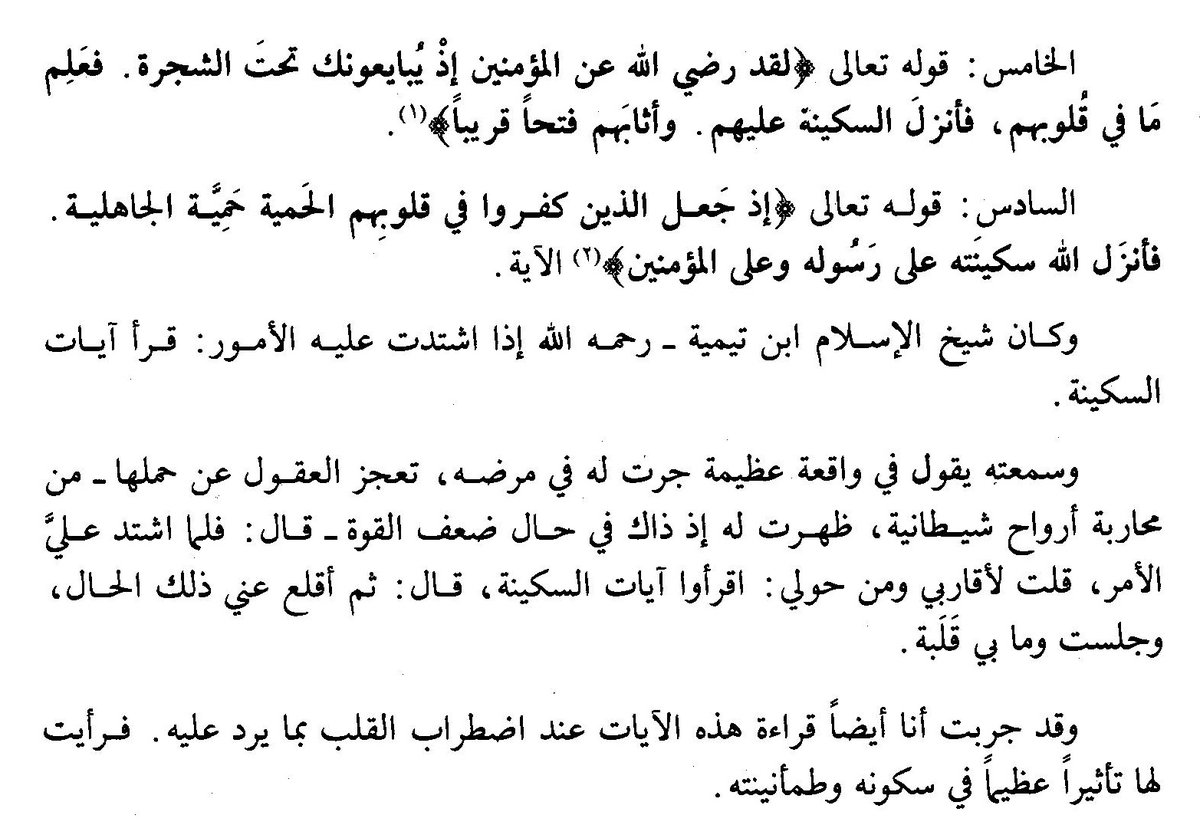
• • •
Missing some Tweet in this thread? You can try to
force a refresh



